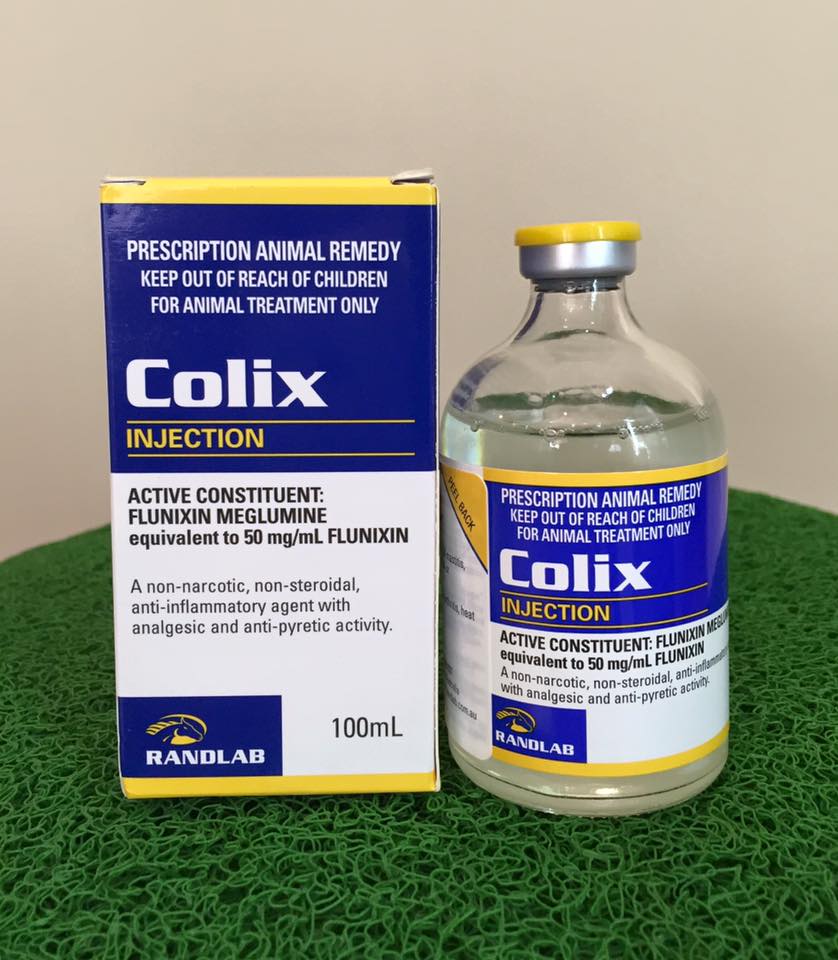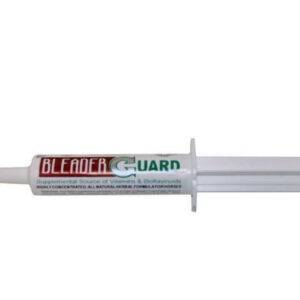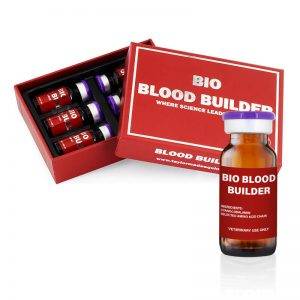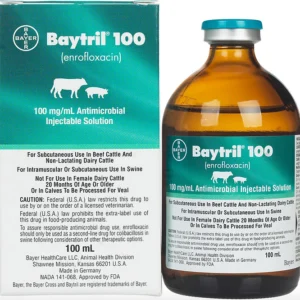Colix Injection
Colix Injection, scientifically known as Flunixin Meglumine, is a popular non-steroidal, non-narcotic medication renowned for its anti-inflammatory properties with analgesic and anti-pyretic functionality. This article will delve into its applications, indications, and guidance on its proper administration.
What is Colix Injection?
Colix Injection is a potent medication imbued with Flunixin Meglumine, equivalent to Flunixin 50 mg/mL. It’s primarily known for its exemplary anti-inflammatory effects, which can alleviate pain and inflammation associated with various disorders in animals.
Key Indications of Colix Injection
It has a wide range of applications across different animal species due to its potent anti-inflammatory and analgesic properties.
In Equines
Colix Injection is indicated for alleviating inflammation and pain associated with musculoskeletal disorders in horses. It is also used to alleviate visceral pain and inflammation associated with colic, aiding in the normalization of peristalsis. It’s also used in the treatment of inflammatory ocular conditions such as uveitis and pre- and post-eye surgery. Additionally, Flunixin, the active constituent in Colix, helps reduce the haemodynamic changes associated with endotoxaemia/endotoxic shock.
In Bovines
In cattle, Colix Injection serves as an aid in managing acute respiratory disease. It also assists in managing “downer cow” syndrome, a condition in which a cow is unable to stand due to injury or illness.
In Swines
For swines, this medication aids in the treatment of mastitis, metritis, and agalactia syndrome (MMA or lactational failure) in sows.
In Canines
In dogs, Colix Injection serves as supportive therapy for arthritis, heat stroke, and cases resulting from accidents.
Dosage and Administration of Colix Injection
The administration of it may vary based on the animal species and the condition being treated.
In Equines
For musculoskeletal disorders in horses, the recommended dosage is 1.1 mg per kg (1mL/45kg) bodyweight, administered once or twice daily by intravenous injection. The treatment can be continued for up to 5 days. For alleviating pain associated with colic, the same dosage is recommended for prompt relief and may be repeated if colic signs recur.
In Bovines
For bovines suffering from infectious respiratory conditions or “downer cow” syndrome, the recommended dosage is 2.2 mg/kg (2 mL/45kg bodyweight) administered I.V. once daily for 1-3 days. Concurrent anti-infective therapy is required in the presence of bacterial infections.
In Swines
For MMA syndrome in sows, a dosage of 2.2 mg/kg (2 mL/45kg) is recommended by deep intramuscular injection (5 cm). One or two injections can be administered twelve hours apart.
In Canines
For dogs, the recommended dosage is 1.1 mg per kg bodyweight, administered I.V. (0.2 mL/9 kg bodyweight) once daily for 2-3 days.
Contraindications and Precautions
It is contraindicated for use in cats. Caution should be exercised when used in pregnant, lactating, or breeding dogs as its safety has not been fully established. Intramuscular administration in horses should be avoided, and concurrent use with other anti-inflammatory drugs should also be avoided.
Trade Advice for Colix Injection
Colix Injection does not have an established Export Slaughter Interval (ESI). For cattle and pigs, meat collected should not be used for human consumption or processing for 7 days after treatment.
Conclusion
Colix injection is a powerful non-steroidal, non-narcotic medication that has proven instrumental in the treatment of various conditions in different animal species. Always consult with a professional veterinarian before administering any medication to ensure the animal’s safety and wellbeing.





Reviews
There are no reviews yet.